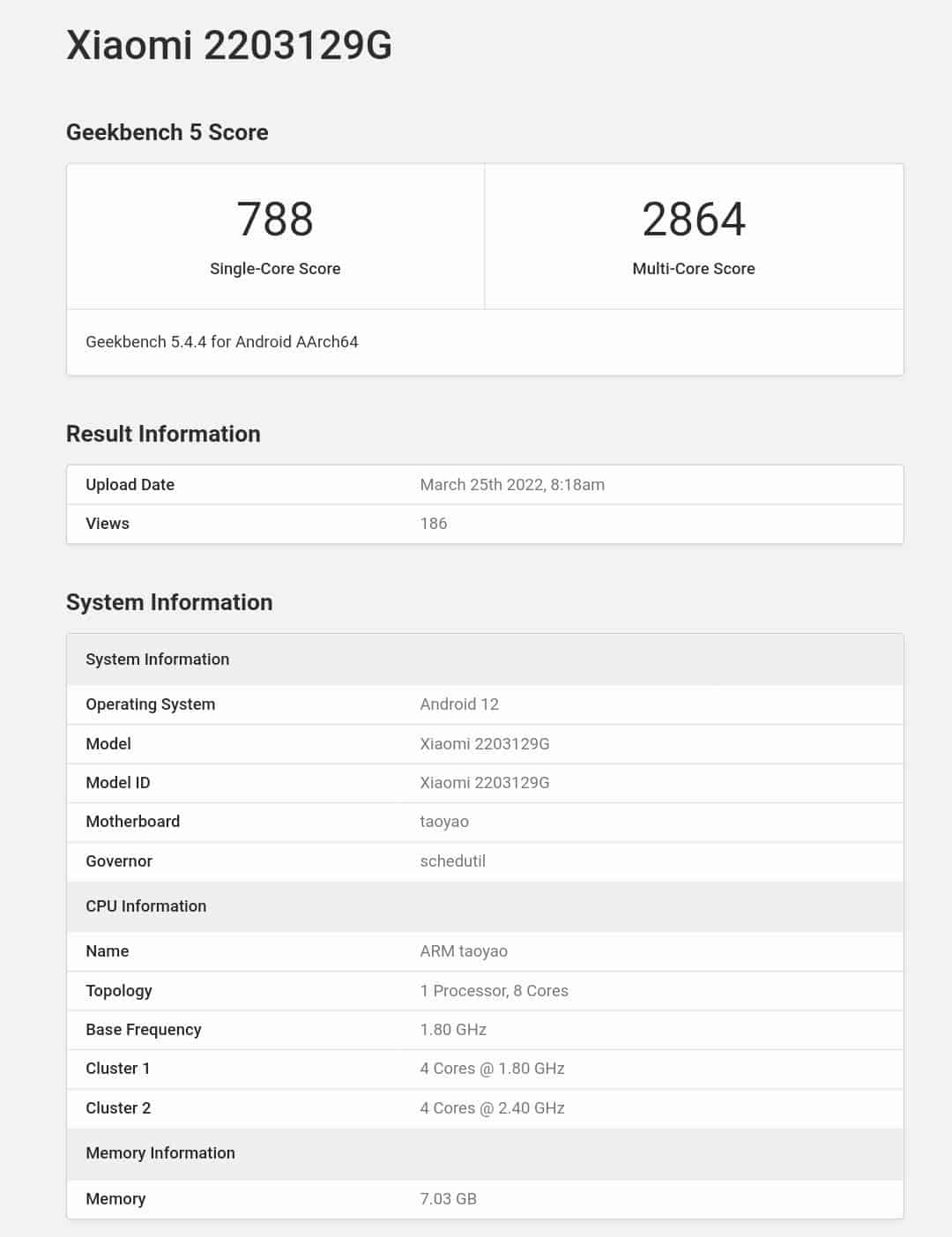Xiaomi 12 Lite will offer three variants: 6/128, 8/128 and 8/256 GB. It also became known that it supports 7 5G bands (SA: n5 / n7 / n66 / n77 / n78; NSA: n5 / n7 / n38 / n41 / n66 / n77 / n78). The smartphone will definitely receive support for NFC, Bluetooth Wi-Fi 5.8 GHz and two SIM cards. It will be preinstalled with the Android 12 operating system with the proprietary MIUI 13. This is all the information about Xiaomi 12 Lite that was found in the database of the US Federal Communications Commission.
According to earlier information, it is known that the device will be equipped with a 6.55-inch curved screen with a hole for the front camera in the center, with Full HD + resolution and a refresh rate of 120 Hz. The fingerprint scanner is integrated into the display. A good, but already outdated Snapdragon 778G chip will be responsible for performance. And the main camera will be honored with three sensors: the main Samsung ISOCELL GW3 module at 64 megapixels, an ultra-wide-angle sensor and a macro camera.

The decisive factor for Xiaomi 12 Lite will be the price. I must say that the light versions of Xiaomi flagships never claimed the title of “top for their money”, they were rather balanced mid-range devices, not bad, but without outstanding features.
The presentation of the Xiaomi 12 Lite is not far off
Xiaomi 12 Lite will soon appear in the markets of Europe and Asia. Apparently, the specs will be largely borrowed from Xiaomi Civi, and the design from Xiaomi 12.
Xiaomi 12 lite 5G 2203129G bags FCC, TKDN, Geekbench & EEC certification.
Gizchina News of the week
– Snapdragon 778G
– Android 12
– MIUI 13
– NFC
– 6GB+128GB, 8GB+128GB & 8GB+256GB storage variants
Geekbench:https://t.co/DLCIk0bXnt
FCC:https://t.co/97IkKM0zi3#Xiaomi #Xiaomi12Lite pic.twitter.com/0jObNwrhlp— Abhishek Yadav (@yabhishekhd) April 8, 2022
Recently, one of the developers of the popular Geekbench benchmark, John Poole, accused Xiaomi of deliberately limiting the performance of smartphones. John Poole tweeted that Xiaomi is limiting device performance based on app names. In particular, disguising the Geekbench application as the popular game Fortnite led to a 30% performance drop in single-core tests, and 15% in multi-core tests. The same thing happened when Geekbench was disguised as Genshin Impact.
Judging by these data, Xiaomi slows down at least games – whether this applies to other applications remains to be seen. Presumably, this is done to avoid overheating of smartphones and save battery power. The main claim of the expert was that the applications of benchmarks that evaluate performance are not “regulated” in this way, which misleads buyers about the actual performance of devices.
This is not the first time the company has been accused of such practices; but the main reason for the stir was that Samsung recently came to the attention of Samsung for similar behavior. In the end, the latter was forced to apologize for the poor performance of the Galaxy S22 flagships; and release an update to prioritize performance in games. A year ago, OnePlus was caught doing the same thing.





